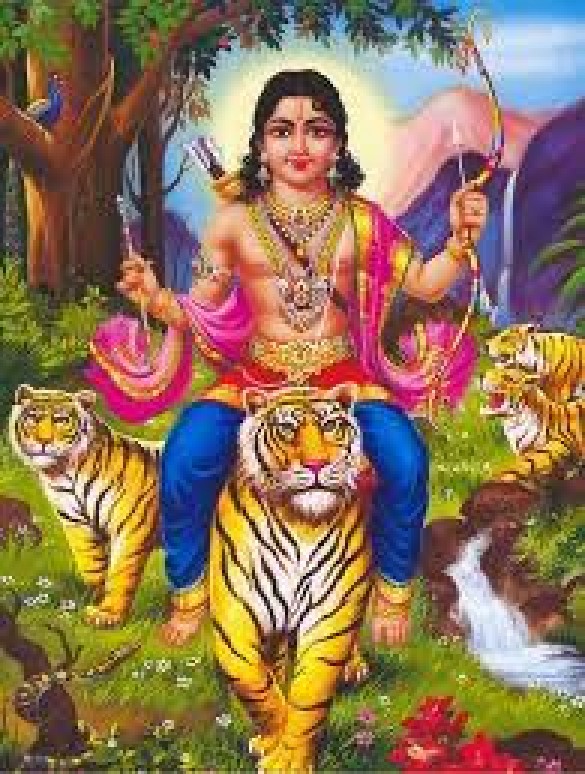
Ayyappan, a revered deity in Hinduism, stands as a symbol of harmony, devotion, and unity amidst diversity. Also known as Lord Ayyappa, he is venerated particularly in the southern states of India, where his cult has gained a following that transcends caste, creed, and social boundaries. The story of Ayyappan's birth, his teachings, and the annual pilgrimage to his sacred shrine at Sabarimala in Kerala, all intertwine to create a narrative of spiritual significance and communal devotion. The legend of Ayyappan's birth is a tale of divine intervention and love. Born out of the union between Lord Shiva and the enchantress Mohini (an avatar of Lord Vishnu), Ayyappan's existence is a result of their union's cosmic energies. Raised by King Rajasekara Pandya, Ayyappan's early life is characterized by virtuous actions and exceptional valor, ultimately leading him to become a guardian deity.
Ayyappan's teachings emphasize values such as compassion, tolerance, and unity. He is often depicted as a yogi who roamed the forests, engaging in deep meditation and self-discovery. His teachings encourage devotees to rise above the limitations of social status and material desires, fostering a sense of equality and fraternity among his followers. One of the most striking aspects of Ayyappan's worship is the annual pilgrimage to the Sabarimala temple in Kerala. Each year, millions of devotees embark on this arduous journey, regardless of their social background, to pay homage to Lord Ayyappa. The pilgrimage is marked by a rigorous 41-day period of fasting, self-purification, and observance of strict disciplines. Devotees wear distinctive black attire, refrain from consuming non-vegetarian food, and engage in acts of charity and selflessness.
Ayyappan's cult is characterized by its inclusivity and the breaking down of barriers that divide society. The pilgrimage to Sabarimala becomes a grand demonstration of unity, where devotees from all walks of life come together, often shedding their caste identities and societal roles. This unique convergence of people, regardless of their background, reinforces the spiritual underpinning of Ayyappan's teachings. Ayyappan is also associated with the concept of "Kulakshetra" or the nurturing father. Devotees regard him as a compassionate protector who ensures the well-being and prosperity of his devotees. He is believed to be a deity who nurtures and guides his devotees, providing them with spiritual strength and emotional solace in times of need.
The story of Ayyappan and his devotees exemplifies the profound impact of spiritual beliefs in fostering unity amidst diversity. In a world often divided by social, cultural, and religious differences, Ayyappan's cult serves as a reminder of the inherent unity that underlies all human beings. The Sabarimala pilgrimage becomes a microcosm of this unity, where people of different backgrounds walk side by side, bound by their shared devotion. Ayyappan's significance transcends the realms of mythology and religion, touching upon the essence of humanity's shared spiritual journey. His teachings inspire compassion, humility, and unity, demonstrating that devotion to a higher power can bridge societal divides and foster a sense of kinship among all beings. As devotees gather at Sabarimala each year, they offer a living testament to the power of devotion and the potential for harmonious coexistence, reminding the world of the enduring importance of Ayyappan's message: to embrace diversity with an open heart and a sense of unity born from the divine.
Also read - Bukit Batok: A Tranquil Suburban Haven in Singapore
Galle: A Captivating Gem of Sri Lanka
Assam Gov's Initiative: Ropeway Project Set for Kamakhya Temple